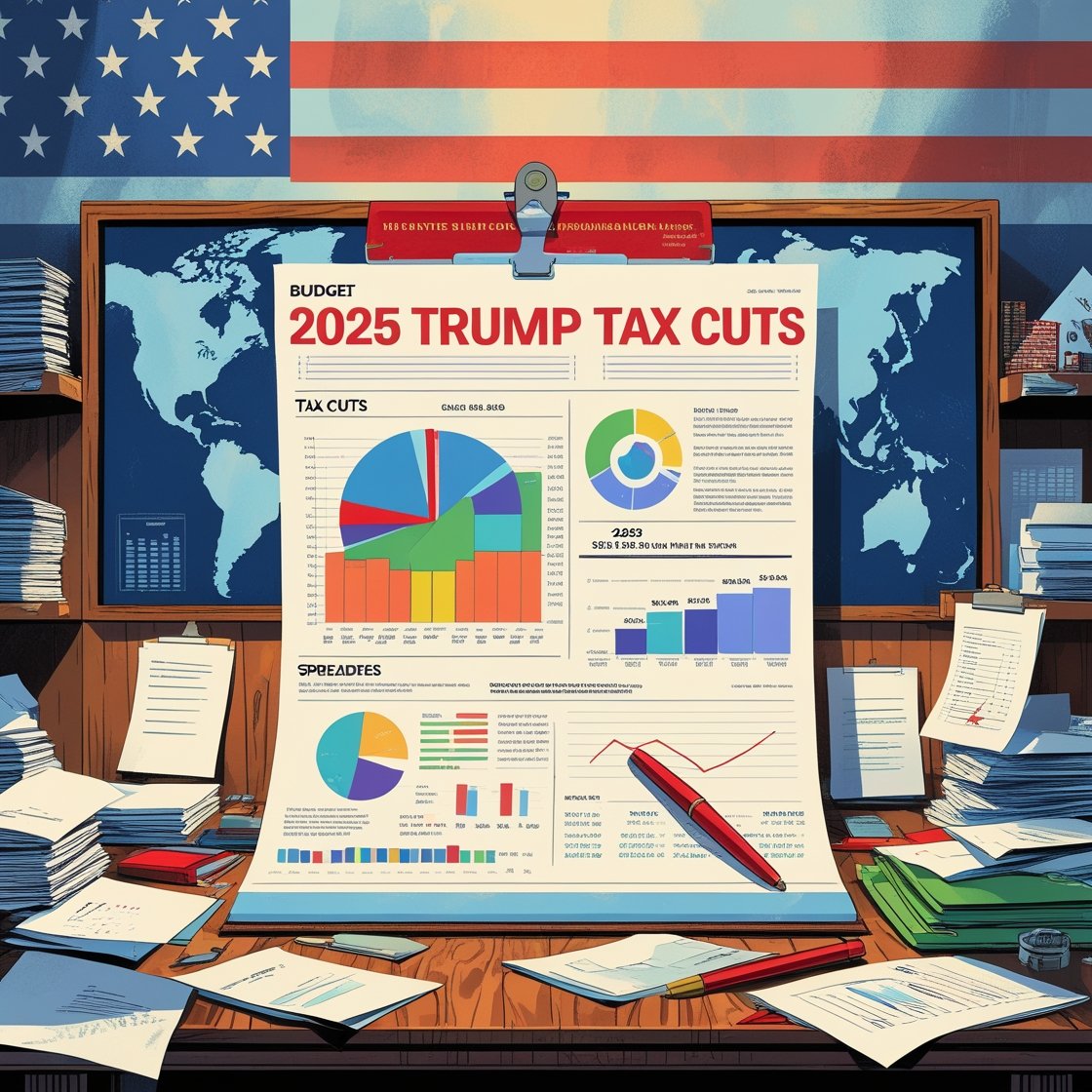As 2025 approaches, one of the most significant fiscal debates in the U.S. revolves around the expiration of key provisions from the 2017 Tax Cuts and Jobs Act (TCJA), commonly referred to as the “Trump tax cuts.” These tax cuts, primarily benefiting individuals and small businesses, were set with a sunset clause, meaning they will expire at the end of 2025 unless Congress takes action. One of the legislative tools that may come into play in determining the fate of these tax provisions is budget reconciliation.
What Is Budget Reconciliation?
Budget reconciliation is a fast-track legislative process that allows certain tax, spending, and debt limit legislation to pass with a simple majority in the Senate, bypassing the filibuster. This process was used to pass the TCJA in 2017, as Republicans controlled both chambers of Congress but lacked the 60 votes needed to overcome a filibuster. By using reconciliation, they were able to enact tax cuts with a simple majority.
As lawmakers now consider the fate of these tax provisions, reconciliation may once again be a critical tool—especially if Congress is divided and unable to pass traditional tax legislation through regular order.
Key Provisions Expiring in 2025
Several provisions from the TCJA are set to expire, and their fate will significantly impact taxpayers, businesses, and government revenue. Here are some key elements at stake:
- Individual Tax Rate Reductions: The TCJA reduced income tax rates for most brackets. Without legislative action, rates will revert to pre-2017 levels, leading to higher taxes for many Americans.
- Standard Deduction Increase: The nearly doubled standard deduction ($13,850 for single filers and $27,700 for married couples in 2023) will shrink, making itemized deductions more attractive.
- Child Tax Credit (CTC) Adjustments: The CTC increased under the TCJA, benefiting families with children. If allowed to expire, the credit will drop, reducing the tax benefit for millions of families.
- Pass-Through Business Income Deduction: Small businesses structured as pass-through entities (e.g., LLCs, S corporations) currently enjoy a 20% deduction on qualified business income. This provision will sunset unless extended.
- Estate Tax Exemption: The estate tax exemption, which was significantly increased under the TCJA, will revert to a lower threshold, impacting high-net-worth individuals and family estates.
Political and Economic Considerations
Renewing the tax cuts through budget reconciliation will depend on the political composition of Congress in 2025. If one party controls both chambers, they could use reconciliation to extend or modify key provisions. However, if there is a divided Congress, negotiations and compromises will be necessary.
The economic implications are also critical. Extending the tax cuts would reduce federal revenue, potentially increasing the national debt unless offset by spending cuts or other revenue-generating measures. On the other hand, allowing the provisions to expire could lead to higher tax burdens for middle-class and high-income households alike.
Potential Outcomes
- Full Extension: If Republicans regain control of Congress and the presidency, they may push for a full extension of the TCJA provisions.
- Partial Extension: A divided government could lead to compromises, extending some provisions (e.g., middle-class tax cuts) while letting others expire.
- Expiration & Reform: If Democrats control Congress, they may let some or all provisions expire and propose new tax reforms aimed at higher earners and corporations.
What Taxpayers Should Do
Given the uncertainty surrounding the 2025 tax landscape, taxpayers and business owners should stay informed and plan accordingly. Consulting with a tax professional can help individuals and businesses prepare for potential changes in tax rates, deductions, and credits.
At RIWA Tax Services, we are closely monitoring developments in tax legislation to ensure our clients receive the most up-to-date advice and strategies. Whether you’re an individual taxpayer, a small business owner, or an investor, our experts can help you navigate the evolving tax landscape and optimize your financial planning.
Final Thoughts
Budget reconciliation will play a pivotal role in determining whether the 2025 Trump tax cuts are extended, modified, or allowed to expire. The outcome will have significant financial implications for millions of Americans. As we move closer to the deadline, staying informed and proactive will be key to minimizing tax liabilities and maximizing benefits.
For personalized tax planning and expert guidance, contact RIWA Tax Services today!
Contact us: +1 (972)-996-6644
Email us : info@theriwa.com Visit our website : https://theriwa.com/






